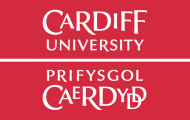
A partnership between Cardiff University researchers and the Max Planck Society is spearheading the quest for clean water, safer industrial processes and Net Zero carbon.
Thanks to a long-running Cardiff Catalysis Institute (CCI) partnership with the Society, Cardiff is home to a Max Planck Centre – one of only three in the UK, and nine in Europe.
The collaboration with Germany’s most successful research organisation allows CCI to continuously develop heterogeneous catalysis, where the catalyst and the reactant/products are in different phases, e.g. a solid catalyst and liquid reactants.
The science of catalysis underpins almost everything humans do, from fertilising crops to washing our dishes. CCI researchers excel in discovering and developing new catalysts – materials that speed up a chemical reaction.
Graham Hutchings, Regius Professor of Chemistry, CCI, says the collaboration has a key role to play in solving society’s pressing problems.
“Catalysts underpin our everyday lives. They’re used to produce almost all manufactured materials. They underpin over a third of global GDP. It is estimated that without one single catalytic method – the Haber Bosch Process that fixes nitrogen with hydrogen to produce ammonia – we would only sustain 60% of the world’s current population.
“Historically, catalytic converters in cars are one of the first things people often mention when considering ‘catalysis’. The exhaust emission control devices convert toxic gases into less harmful emissions. Most news stories these days centre on the theft of converters, which contain valuable precious metals.
“Indeed, precious metals – particularly gold nanoparticles – play a major role in our research as the Max Planck Centre on the Fundamentals of Heterogeneous Catalysis (FUNCAT). The Centre specialises in three key themes: catalyst design, acetylene reactions and machine learning.
“In our Max Planck Centre laboratories, we demonstrate and develop hugely successful processes adopted worldwide. Cardiff Catalysis Institute teamed with global science and chemicals company Johnson Matthey to develop an environmentally friendly catalyst for the manufacture of vinyl chloride monomer (VCM), which is used to make poly vinyl chloride (PVC).”
The catalyst, which replaced products containing toxic mercury compounds, won Innovative Product of the Year at the Institution of Chemical Engineers Global Awards 2015, and is now embedded in PVC industrial processes. The discovery not only led to a new commercial catalyst but also changed international law.
When the Max Planck Centre (and Cardiff Catalysis Institute) moves to Cardiff University’s state-of-the-art Translational Research Hub later this year, it will be equipped with the laboratory spaces to further develop safe, sustainable, commercial catalysts with new applications – for instance, making methanol from waste glycerol to produce cleaner biodiesel, or producing greener solutions for laundry, dishwashing and water disinfection.
The CCI work with internationally leading and recognised partners like Johnson Matthey across fields such as fuel and chemical manufacturing industries and help to develop and refine processes through combinations of conventional and innovative methods.
In the years ahead, and with new facilities on the horizon, CCI hopes its continued partnership with Max Planck will further our goal of joint excellence, and contribute to creating a cleaner, greener planet by improving the understanding of catalysis, developing new catalytic processes with industry, and promoting the use of catalysis as a sustainable 21st-century technology.




